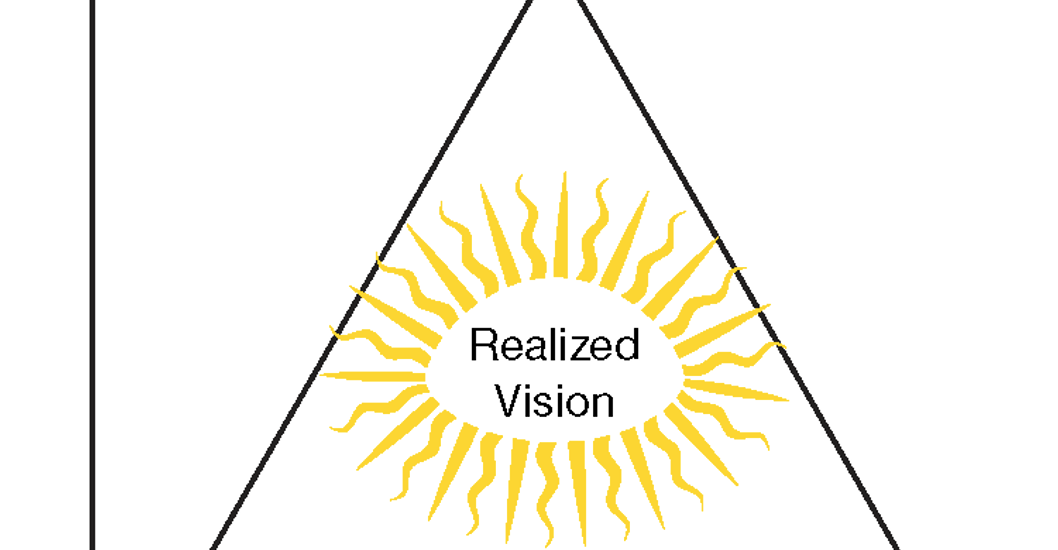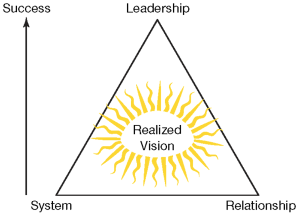- August 31, 2022
- Posted by: andreag
- Category: High PerformanceLeadershipOrganizational GrowthPerformance Management

By Andrea Garrels, PGS Consultant
I have worked with PGS for over 30 years. 28 as a team member, and 2 years prior to that as a client employee. For the last several years, however, I have added to my resume a job at a university near my home in Tennessee. As part of that work, I began teaching the “intro to college” course this fall that is required of all freshmen to take. While preparing a lesson plan recently for my students on time management and taking ownership of their college experience, I was reminded of a PGS tool we have rolled out to clients for many years and was struck by its value for college students as well.
 My memory of the development of PGS’ original Model of Success starts in a Thai restaurant in Anchorage with Bill Dann and Doug Johnson, sketching the triangle on the back of a paper placemat. (I may be a little off on those details, but nevertheless.) A few iterations and many clients later, the Model of Success remains a foundational principle and tool for our clients at PGS. Nicknamed the LRS triangle, the Model consists of three key components essential for organizations to reach their vision. L = Leadership, R = Relationship, and S = Systems. For each component, there are a group of tools and processes that help a client to master that component and in so doing, help the organization successfully move toward its vision. “Leadership” includes tools like board development, executive coaching and succession planning. “Relationship” includes team development, the Question Method and supervisor training. “Systems” includes process improvement, reorganization, project planning and the like.
My memory of the development of PGS’ original Model of Success starts in a Thai restaurant in Anchorage with Bill Dann and Doug Johnson, sketching the triangle on the back of a paper placemat. (I may be a little off on those details, but nevertheless.) A few iterations and many clients later, the Model of Success remains a foundational principle and tool for our clients at PGS. Nicknamed the LRS triangle, the Model consists of three key components essential for organizations to reach their vision. L = Leadership, R = Relationship, and S = Systems. For each component, there are a group of tools and processes that help a client to master that component and in so doing, help the organization successfully move toward its vision. “Leadership” includes tools like board development, executive coaching and succession planning. “Relationship” includes team development, the Question Method and supervisor training. “Systems” includes process improvement, reorganization, project planning and the like.
For my college freshmen, a successful collegiate career also includes Leadership, Relationships and Systems. For them, leadership includes prioritizing the work that needs to be done and completing it, knowing when to seek out tutoring or other help, and taking responsibility for their grades. Relationships that are essential to a college student’s success include those with their advisor, professors, peer mentors, tutors and classmates. Finally, the systems they put in place can make or break their success. Time management, note taking skills, preparing for midterms and finals are all systems that are essential for college students to master.
This led me to wonder if the Model of Success isn’t valuable for each of us as individuals, from the narrow perspective as employees of organizations to the broad perspective as human beings. How do we take leadership of our lives and in our lives, whether in the context of our work or our lives outside our career? What relationships are essential to us and how are they doing? What systems and routines could we put in place in our work lives or daily lives that could simplify the work we must do and allow us the time to focus on more meaningful tasks and accomplishing those tasks with more effectiveness?
I haven’t fully answered those questions for myself, and am not sure you can ever really reach the end of asking those questions and developing the skills and systems. But I have started the groundwork for my personal “LRS triangle”. I would be interested to know your thoughts and perspective.
If you are leading an organization, a department or functional area of an organization, consider our Discovery Assessment to help you identify which components of the Model of Success could benefit from some concentrated time and attention. A Discovery Assessment is a low cost entry to learning about your organization, giving you both insight and direction to focus your efforts. Contact me to find out more. In the meantime, take a look at your personal Leadership, Relationships and Systems for opportunities to improve and build a stronger future for yourself.



